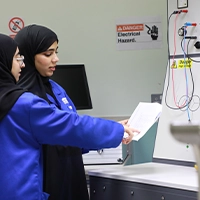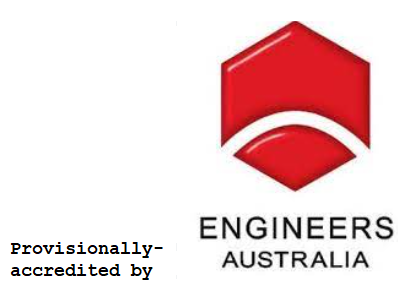
| Type | Undergraduate |
| Language | English |
| Duration | 4 Years |
| Study mode | Full Time |
| Credit Units | 69 |
The Electrical and Computer Engineering (ECE) program offers students a comprehensive blend of specialized knowledge and versatile skills essential for thriving as professional engineers who meet the demands of the market. This program is inherently practical, geared towards cultivating proficient electrical and computer engineers capable of excelling in diverse industries and settings. ECE students engage in a spectrum of activities encompassing design, analysis, optimization, and process control. They also play a pivotal role in mentoring others undertaking similar tasks across various sectors, including electrical and computer-related industries, consultancy firms, government agencies, academic institutions, and private enterprises.
With a curriculum rich in practical components, factory visits, and training opportunities, the program seamlessly integrates theoretical concepts with real-world applications. Core areas covered include electrical and electronic systems, computer engineering, control and instrumentation, and embedded systems, fostering expertise development among students.
Upon completing a Bachelor’s degree in Electrical and Computer Engineering, graduates specialize in various engineering domains, such as electrical engineering, computer engineering, electrical instrumentation engineering, electronics/communications engineering, as well as research in electrical and computer engineering. On the other hand, electrical and computer engineering diploma degree graduates work as technicians in the above-mentioned fields.
Program Aims
The electrical and computer engineering program aims to graduate engineers who are capable of working in the field of electrical and computer engineering with high technical, communication, teamwork, and leadership skills.
Program Objectives
- To prepare engineers who can successfully work in electrical and computer engineering or related disciplines.
- To act ethically and professionally in modern diverse work environments and communities through effective communication, leadership, and responsible teamwork.
- To pursue post-graduate studies and/or professional development in electrical and computer engineering or related disciplines to sustain and advance their careers.
|
Specialization |
Diploma |
Bachelor |
||
|
Level 1 (18 Units) |
Level 2 (19 Units) |
Level 3 (16 Units) |
Level 4 (16 Units) |
|
|
Fee per Unit in OMR |
Fee per Unit in OMR |
Fee per Unit in OMR |
Fee per Unit in OMR |
|
|
Electrical and Computer Engineering |
134 |
134 |
161 |
161 |
 العربية
العربية

